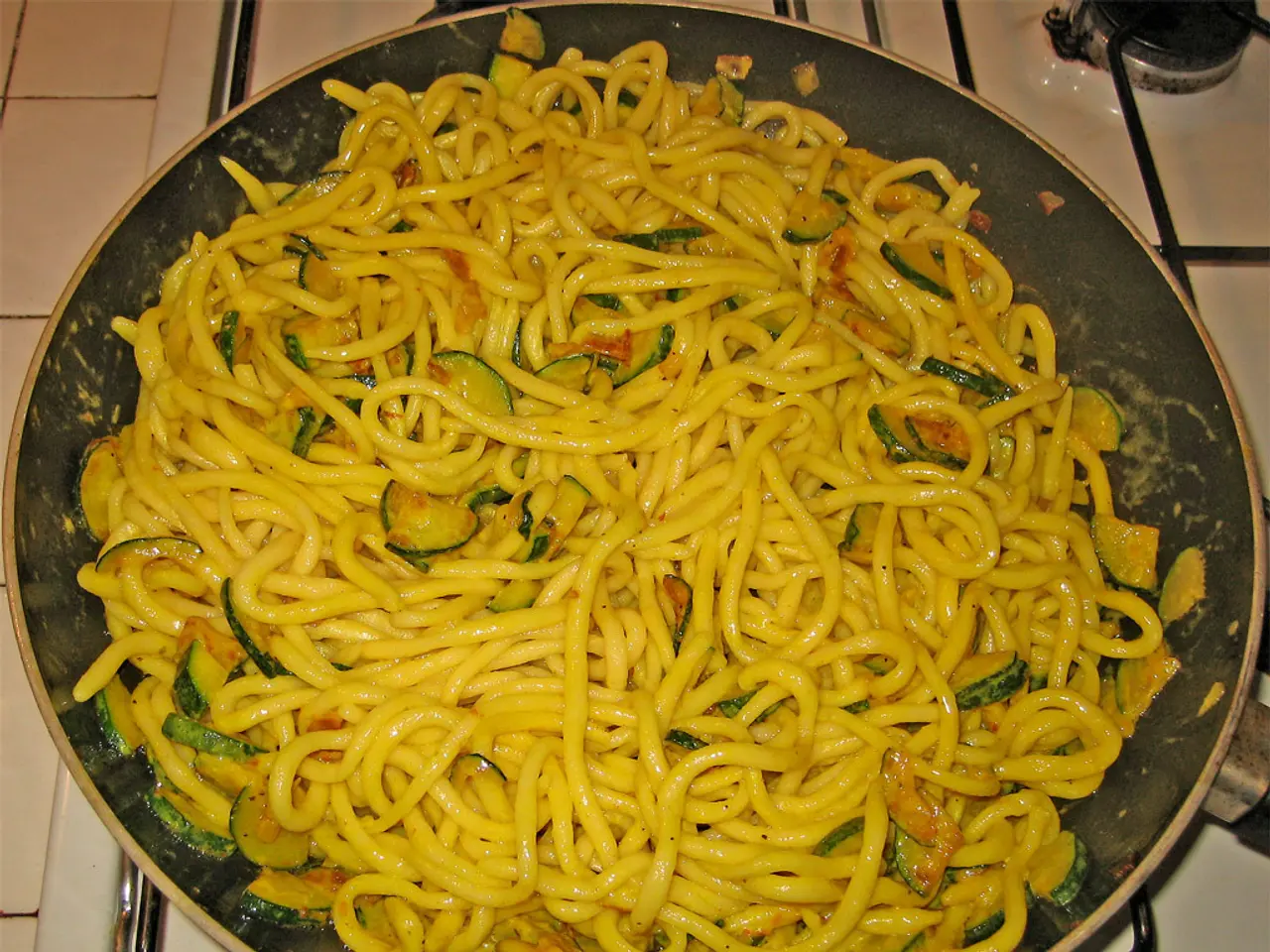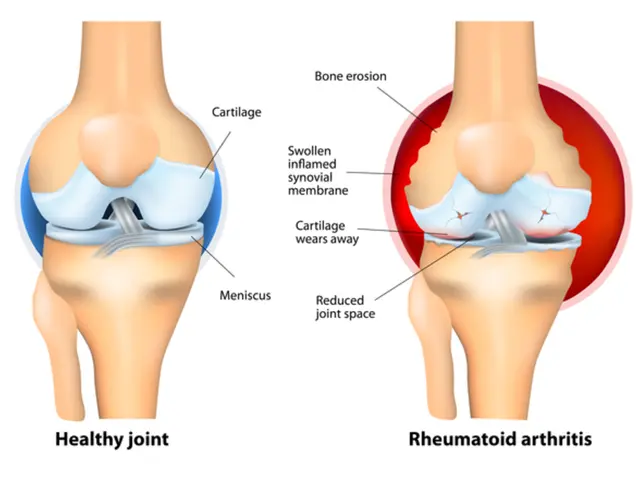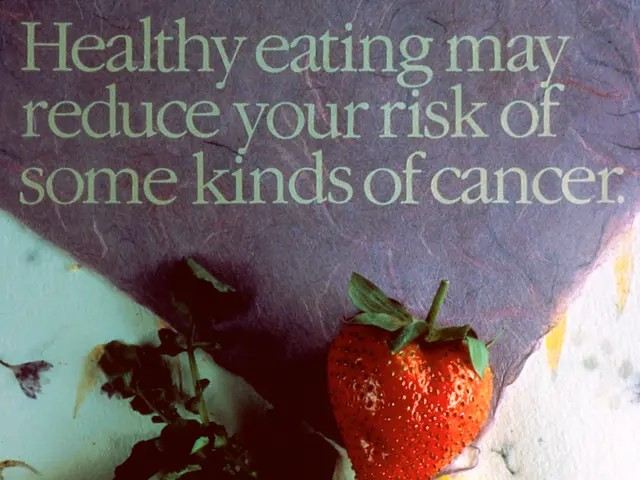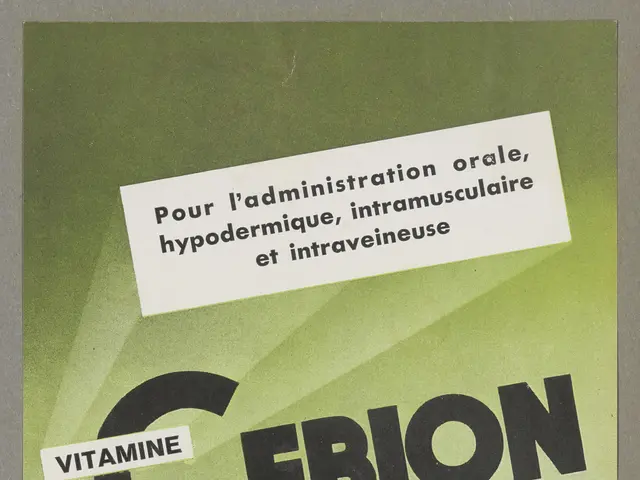Tyramine-free diet options: Understanding their advantages and intended audiences
In the realm of dietary recommendations, one particular diet stands out for individuals taking Monoamine Oxidase Inhibitors (MAOIs) - the low-tyramine diet. This diet is crucial for those seeking to avoid migraines and adverse effects associated with MAOIs.
The emphasis of this diet is on fresh, non-fermented, non-aged foods. This is due to the fact that modern hygiene and production standards have led to a decrease in tyramine levels in most foods and drinks.
Fresh, frozen, or canned fruits and vegetables, all grains such as bread, cereals, rice, and pasta (avoid sourdough breads as they may contain more tyramine), fresh meats and poultry, and fresh fish are all safe choices. However, it's important to consume fresh meats and poultry soon after purchase and to avoid aged, dried, fermented, or improperly stored meats like salami, bologna, hot dogs, liverwurst, pepperoni, and so on.
Dairy products low in tyramine, such as cream cheese and cottage cheese, are also safe. However, aged cheeses like cheddar, blue, Swiss, Parmesan, Gouda, Brie, feta, and others should be avoided.
Freshly cooked foods eaten within 24 to 48 hours of preparation are also recommended. It's advisable to buy fresh foods and freeze or cook them promptly, and to avoid eating leftovers that have been refrigerated for more than 1-2 days.
Additional dietary guidelines include consulting healthcare providers on alcohol consumption while on MAOIs, as many alcoholic beverages—especially fermented types—contain tyramine.
Key foods to avoid due to high tyramine levels are aged cheeses, aged, dried, fermented, or pickled meats, fermented products like sauerkraut and pickles in some cases, and sourdough breads. Hot dogs, bacon, sausages, ham, and luncheon meat with added nitrates can be consumed cautiously.
Raw onion, canned soups with autolyzed or hydrolyzed yeast, monosodium glutamate, or meat extracts should be consumed with caution. Sourdough bread, homemade yeast-leavened bread and cakes can be consumed cautiously as well.
Two teaspoons of Parmesan or Romano cheese can be consumed cautiously. Half a cup per day of yogurt, buttermilk, and sour cream can also be consumed cautiously. Half a cup a day of citrus fruit or pineapple, chocolate-based puddings and products, wine vinegar and other fermented vinegars, avocados, bananas, passion fruit, papaya, figs, raisins, dried fruit, and red plums can be consumed in limited amounts.
If someone suspects they experience adverse reactions to tyramine foods, they can speak with a doctor about following a low tyramine diet. Many foods that are fermented, aged, or cured may contain higher levels of tyramine, such as beer and wine, chocolate, nuts, aged cheeses, fermented vegetables, soy sauce and Worcestershire sauce, cured or salt-dried meats, pickled or dried fish or shrimp, coffee, and certain fresh produce like avocado, beetroot, and grapes.
People taking MAOIs should speak with their doctor about following a low tyramine diet and which foods to limit. Tyramine may also affect the immune system, and consuming large amounts of tyramine can potentially lead to hypertensive crisis or trigger migraine attacks.
In conclusion, adhering to a low-tyramine diet is crucial for those taking MAOIs to maintain a healthy lifestyle and avoid potential adverse effects. Always consult with a healthcare provider for personalised dietary advice.
- For individuals taking Monoamine Oxidase Inhibitors (MAOIs), following a low-tyramine diet is essential to manage medical-conditions like migraines and reduce adverse effects.
- The focus of this specialized diet lies on fresh, non-fermented, and non-aged foods, aiming to minimize tyramine intake due to modern hygiene and production standards.
- Safe food choices on this diet include fresh fruits and vegetables, all grains, fresh meats and poultry, fresh fish, dairy products like cream cheese and cottage cheese, and freshly cooked foods eaten within 24 to 48 hours.
- It's advised to avoid aged cheeses, cured and fermented meat products, certain types of bread, and various fermented foods, as they contain high levels of tyramine that could trigger migraines or exacerbate migraine attacks for those on MAOIs.





